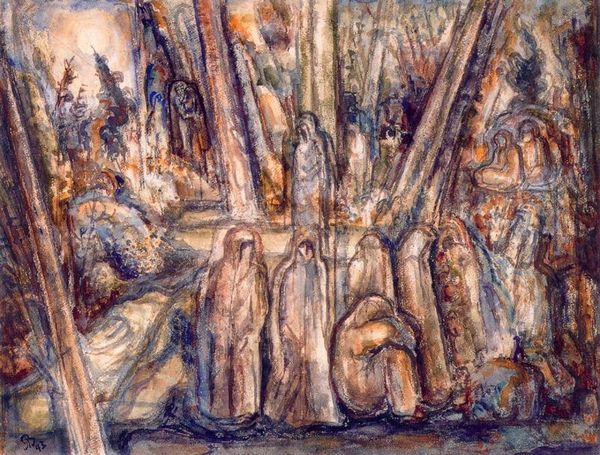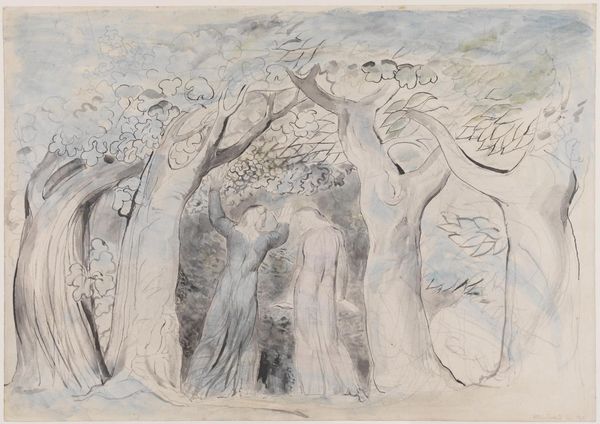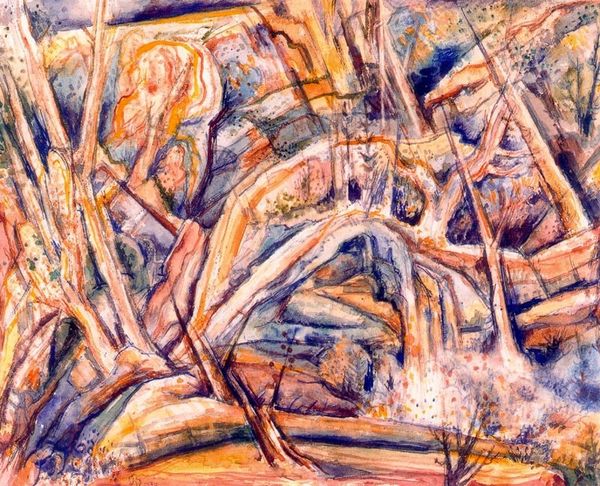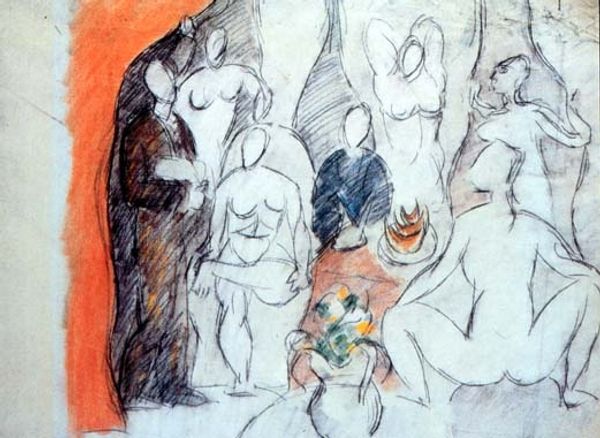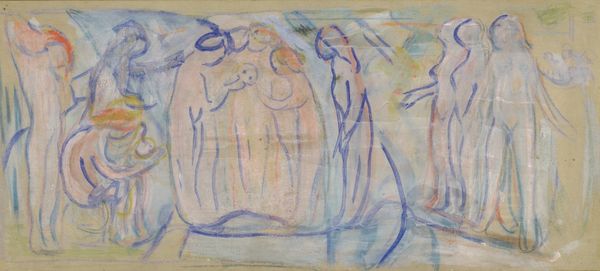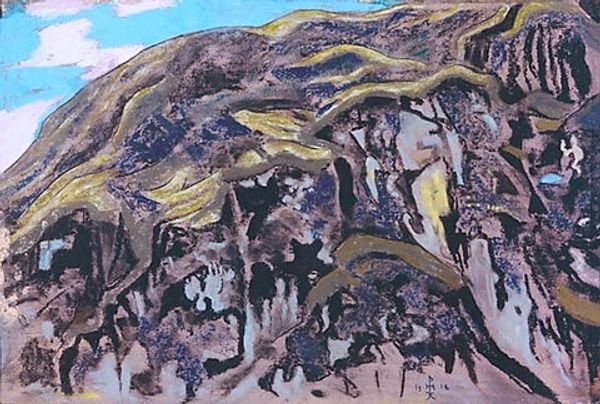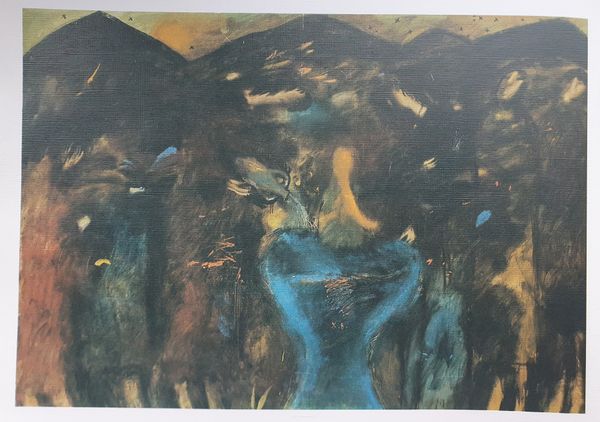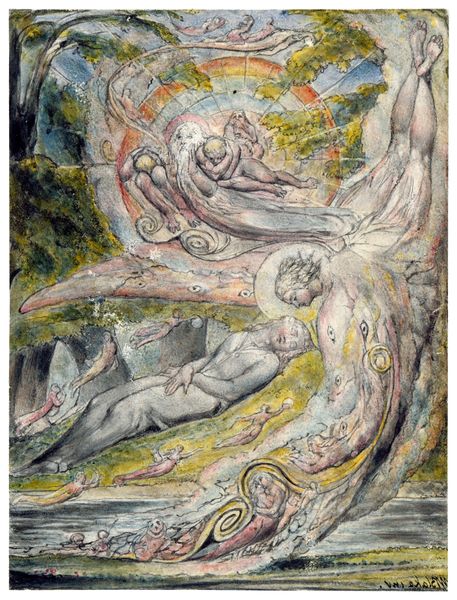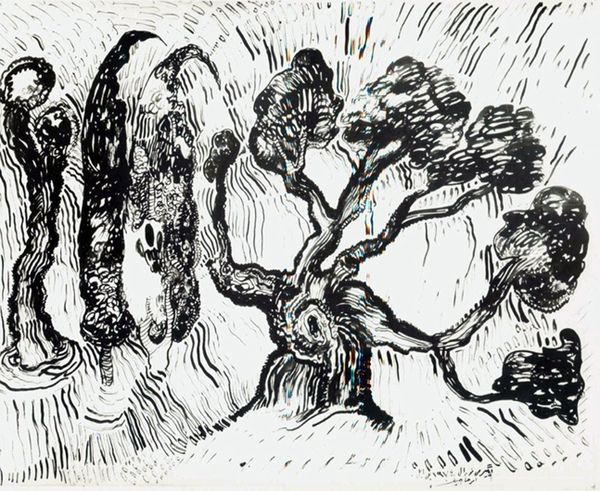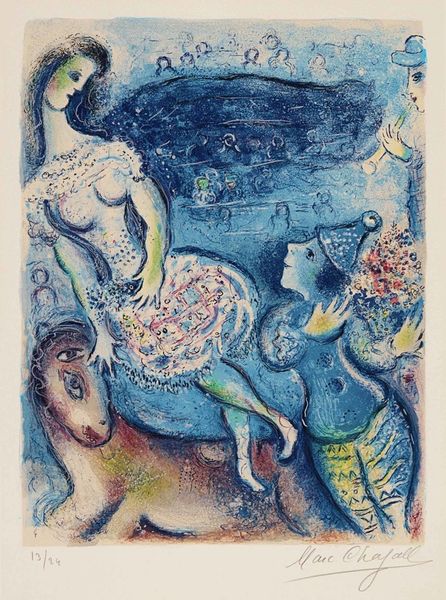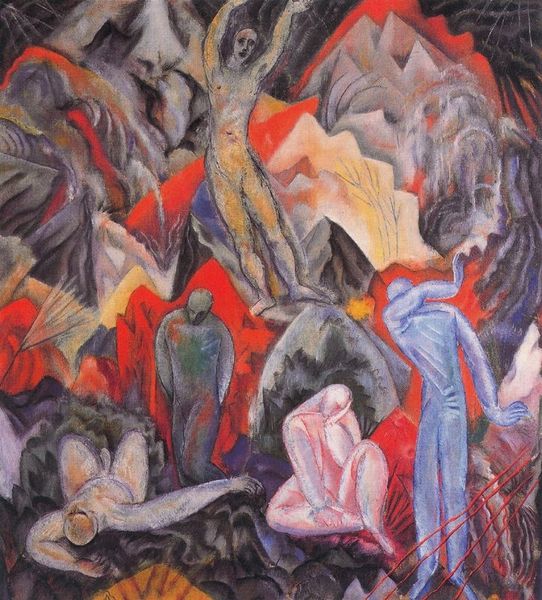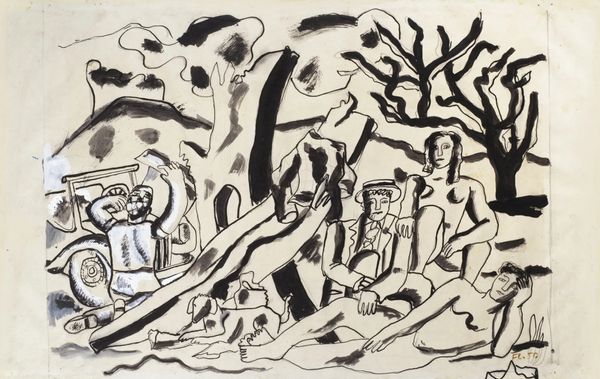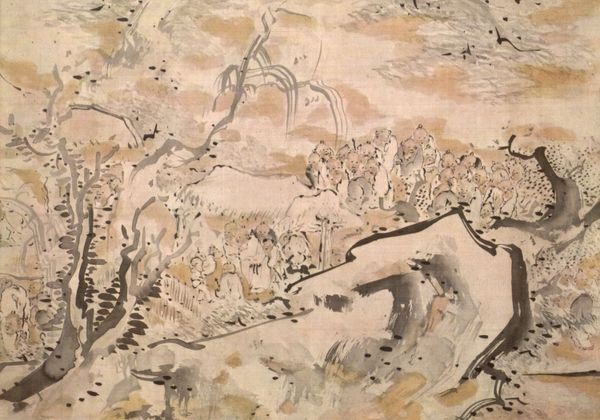
drawing, painting, paper, watercolor, ink
#
drawing
#
narrative-art
#
painting
#
landscape
#
fantasy-art
#
figuration
#
paper
#
watercolor
#
ink
#
romanticism
#
history-painting
Copyright: Public domain
William Blake made this watercolor illustration to Dante's Divine Comedy in England, sometime between 1824 and 1827. Blake was deeply skeptical of institutions and especially opposed to the Royal Academy's emphasis on naturalistic representation. Blake instead drew inspiration from earlier art forms and religious visions to critique rationalism and materialism in British society. The Divine Comedy, written in the early 14th century, became a perfect source for his own unique, critical style. Blake's illustration captures the moment when Dante and Virgil encounter the Wood of the Suicides, with trees that have been transformed into human bodies. Dante's work was a searing commentary on the politics of his own time, and Blake takes up this challenge, critiquing his own social context through allegorical and visionary means. To understand Blake's social role as an artist, scholars have looked to sources such as illuminated printing, the writings of mystics such as Emanuel Swedenborg, and radical political movements that promoted revolution in the late 1700s. Art in this light becomes something that is contingent on social and institutional context.
Comments
No comments
Be the first to comment and join the conversation on the ultimate creative platform.
